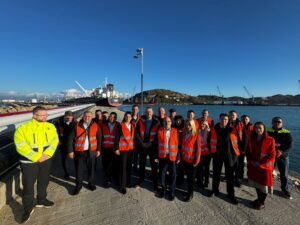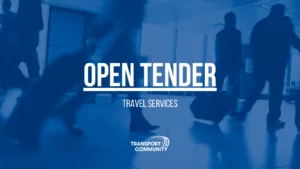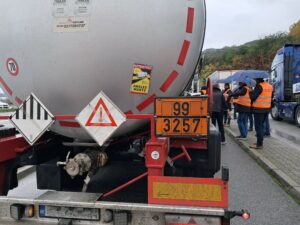
Strategy for Sustainable and Smart Mobility in the Western Balkans
Greenhouse gas emissions in the region are largely coming from energy and transport sectors, encompassing two thirds of overall share. Transport sector represented 16 per cent share of these emissions in 2018. While pollutant concentrations in Western Balkans are often above the yearly average, daily maximum and hourly maximum limits.
Making transport cleaner and sustainable is one of the key drivers of transport policy in European Union and in Western Balkans Region (Green Deal, Green Agenda, Economic and Investment Plan, EU Sustainable and Smart Mobility Strategy).
The purpose of developing the Transport Community Permanent Secretariat’s (TCPS) Sustainable and Smart Mobility Strategy for the Western Balkans is to:
- mirror the European Union`s Sustainable and Smart Mobility Strategy
- to adjust goals, milestones, and actions of the EU to the realities in the Western Balkans region,
- to provide the region with a roadmap for decarbonisation and digitalisation of its transport sector.
Strategy sets common regional objectives and will assist regional partners to develop and strengthen their National Strategies. With the final aim of making transport greener, sustainable, and healthier for citizens of Western Balkans. Strategy and corresponding gap analysis are structured around ten EU flagships and three objectives:
- Sustainable,
- Smart and
- Resilient Mobility
More on the link below:
- December 2025 – Progress Report on Sustainable and Smart Mobility Strategy in the Western Balkans
- December 2024 – Progress Report on Sustainable and Smart Mobility Strategy in the Western Balkans
- December 2023 – Progress Report on Sustainable and Smart Mobility Strategy in the Western Balkans
- December 2022 – Progress Report on the Strategy for Sustainable and Smart Mobility in the Western Balkans
- July 2021 – Strategy for Sustainable and Smart Mobility in the Western Balkans
- July 2021 – GAP Analysis – Strategy for Sustainable and Smart Mobility in the Western Balkans









